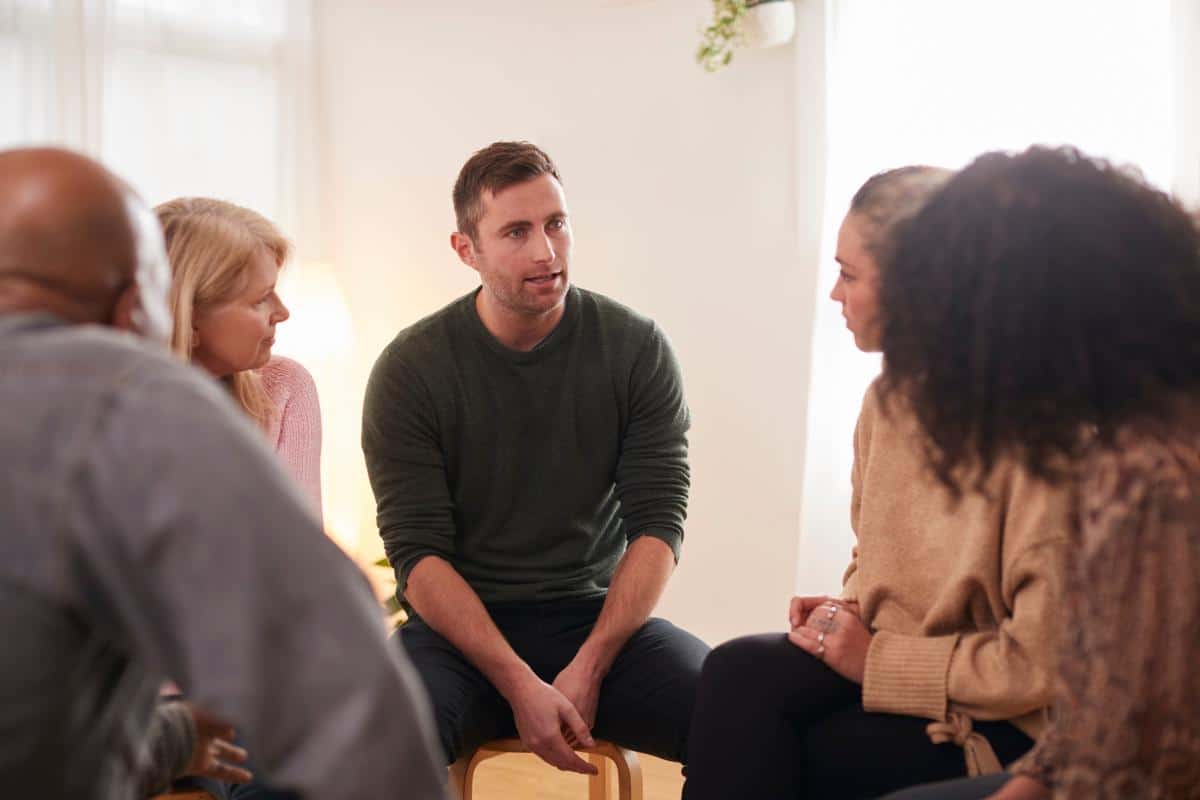Benzodiazepines Addiction Treatment
Personalized treatment for a healthier, more stable future.
Benzodiazepine Rehab at Northpoint Recovery
Our care is evidence-based, human-centered, and built around you.
Benzodiazepine addiction is often tied to deeper struggles, like anxiety, trauma, or emotional disconnection. That’s why we look at the full picture: what led to the addiction, what’s keeping it going, and what it takes to truly heal.
We provide treatment for a range of benzodiazepines, including:
- Xanax (alprazolam)
- Valium (diazepam)
- Klonopin (clonazepam)
- Ativan (lorazepam)
- Librium (chlordiazepoxide)

Safe and Supervised Medical Detox
The first step in recovery is often detox, and at Northpoint Recovery, it’s never something you face alone. Our medical detox is monitored 24/7 by experienced professionals who prioritize your safety, comfort, and well-being every step of the way.
Why Benzodiazepine Withdrawal Needs Special Care
When someone stops using benzodiazepines, especially after long-term use, their nervous system can rebound in dangerous ways. Withdrawal symptoms may include:
- Severe anxiety or panic attacks
- Shaking, muscle stiffness, or tremors
- Rebound insomnia or sensitivity to light and sound
- In some cases, seizures or hallucinations
Therapies We Use to Treat Benzodiazepine Addiction
Benzo addiction is rarely just about the medication — it’s often tied to anxiety, trauma, or deeper emotional patterns. That’s why we don’t use a one-size-fits-all approach.
Our blend of evidence-based therapies helps you work through the root causes, rebuild emotional resilience, and develop healthier ways to handle life’s stressors.
Therapies used in our programs include:
- Cognitive Behavioral Therapy (CBT) to shift unhelpful thought patterns and build healthier ways to cope.
- Dialectical Behavioral Therapy (DBT) to manage emotions, reduce impulsive behavior, and strengthen communication.
- Individual Therapy for one-on-one support focused on what led to benzodiazepine abuse and moving forward.
- Group Therapy to find connection, encouragement, and healing through shared experiences.
- Family Therapy to rebuild trust, improve communication, and help loved ones support your recovery from benzodiazepine addiction.
Each piece works together to support real, lasting change in how you think, feel, and respond in your everyday life.

Explore Our Addiction Treatment Options
Inpatient
24/7 care in a structured, supportive environment to focus fully on recovery.
Outpatient
Flexible treatment with daytime or evening sessions while living at home.
Virtual Outpatient
Convenient, online therapy and support from anywhere — no commute needed.
Planning for Life After Treatment
Recovering from benzodiazepine addiction is a long-term process, which is why we make sure you leave treatment with a clear plan and the right support to keep moving forward.
Before you complete treatment, our care coordinators will help you set up follow-up appointments, connect with local providers, and access tools that support your independence.
Lifetime Alumni Program Access
After treatment, you’ll have free access to our alumni program. It’s a built-in recovery community where you can stay connected, find encouragement, and keep growing.
Featured Resources
Explore resources that meet you wherever you are in your journey.
FAQs About Benzodiazepine Addiction Treatment
What is the success rate of benzodiazepine treatment?
Success in benzo recovery depends on quality care, ongoing support, and a personalized approach. At Northpoint Recovery, we’ve built a program that helps clients heal the root cause behind their addiction, enabling them to move on and grow in ways they couldn’t before.
Our results speak for themselves:
- 75% of clients report they’re still sober after 6 months
- 89% remained substance-free 90 days after discharge
- 90% of alumni say their treatment at Northpoint was a success
What if I struggle with benzo addiction and a mental health condition?
That’s actually more common than you might think. Many people with benzodiazepine addiction also deal with anxiety, depression, or other mental health conditions.
Our dual diagnosis program can treat both at the same time, so you’re not just managing symptoms — you’re getting support for the root of the problem.
What’s the admissions process for benzodiazepine addiction treatment?
Our admissions process is designed to be clear, supportive, and low-pressure. Here’s what you can expect when you reach out to us:
- Talk to admissions to decide on the program right for you and verify your insurance.
- Schedule your assessment.
- Start your program.
With 24/7 phone lines and no wait admissions, we’re here to help you find the solution that works best for you.
Does insurance cover benzodiazepine addiction treatment?
Coverage depends on your insurance plan and provider. We work with most major insurance providers across the U.S. to help minimize out-of-pocket costs for our addiction treatment programs.

